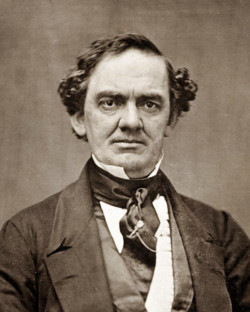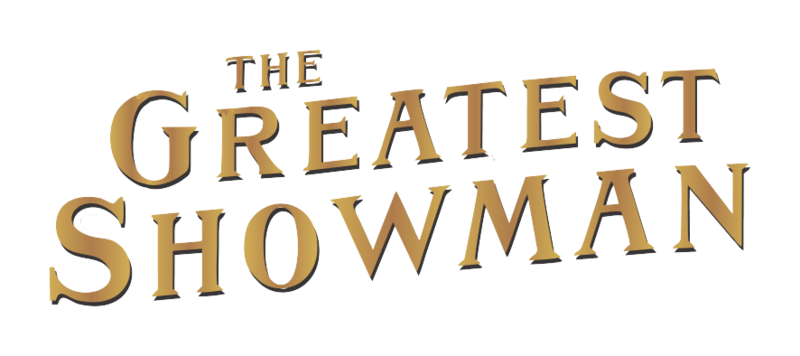The Greatest Showman? Why the P.T. Barnum Biopic Strikes a Sour Note
The Greatest Showman stars two of the most charming and charismatic actors in film today; Hugh Jackman and Zac Efron. These are two actors who know how to hold audience attention by being self-deprecating, fun and friendly. They’re likeable both on and off screen. And, on the surface, The Greatest Showman looks to be just as fun and enjoyable as its leads; it’s a story of self-love and discovery, of accepting differences in everyone and anyone.
History, however, tells a different story.

The real P.T.Barnum. Image credit: Wikimedia commons
The eponymous “greatest showman” is P.T. Barnum, the founder of the circus as we know it today, all the way back in 1871. Barnum was an intensely savvy businessman, with the life-long aim of putting “money in his own coffers”. As Dickens said of Scrooge, this one thing about him you must remember, or nothing else about this tale will make sense.
Barnum began the circus late in his life as a money-making venture. And this is where the problem lies with The Greatest Showman, a movie about P.T. Barnum’s life. The Greatest Showman markets itself as a movie about a group of marginalised individuals, individuals with disabilities, or people of colour, coming together in celebration of who they are and acceptance of each other. The lead song of the trailer (‘This Is Me’) loudly proclaims pride and self-love. So far, so uplifting.
But the circus of the Nineteenth Century was not a place of celebration.
Often described as “freak shows”, circuses were built on the mockery of individual differences, whether those differences be skin colour, disability, or heritage. Individuals were placed on show for the scorn of the paying public, not to validate them as part of society, but rather to ostracise them.
So, isn’t there some kind of problem in presenting P.T. Barnum as the ingenious hero of The Greatest Showman? To celebrate Barnum is to celebrate the circuses of his time, which directly rebuke the supposed teachings of this movie. In fact, to celebrate Barnum is to celebrate a man who made money on the suffering of his “freaks”, as he would later label them. A man who, at 25 years old, illegally purchased a paralysed and blind slave woman named Joice Heth, to exhibit to a paying public and charged entrance fees to her autopsy.
Ignore what you see on the silver screen, history is much bleaker.
To see this movie as a celebration of cultures and differences is to erase the history of suffering that these individuals went through at the hands of P.T. Barnum, and the joyful sing-along nature of this movie musical is a slap in the face to the memory of all those who were victims of the Victorian circus.
To celebrate Barnum is to celebrate the circuses of his time, which directly rebuke the supposed teachings of this movie
Yet there are those who would say that this analysis of Barnum is too simplistic. Later in his life, Barnum opposed the Kansas-Nebraska Act in 1854 and became a leader for slave emancipation during the Civil War. While being a producer of racist minstrel shows, he also used them to criticise white power. So who exactly was this paradoxical man? What, if anything, did he believe in? Barnum answered that himself: “I am a showman by profession…and all the gilding shall make nothing else of me.”

Hugh Jackman is a VERY different looking take on Barnum! Image credit: Wikimedia commons
Barnum was a money-maker. He was highly sensitive to the trade-winds and the demands of the public and he used them to his profit. Was Barnum a racist, or did he exploit the racism in society around him to make a quick buck? Whether or not this was the case, Barnum exploited. In treating his so-called “freaks” as commodities, he classified his circus workers as sub-human, objectifying them for his profit. Barnum’s story is not one of inclusion and ingenuity, but one of cruelty and barbarity, and The Greatest Showman insults the memory of those exploited by him by denying it.
To see this movie as a celebration of cultures and differences is to erase the history of suffering that these individuals went through at the hands of P.T. Barnum
True, the movie touches on the racial tensions of the time through its exploration of an interracial relationship between Zac Efron and Zendaya’s character, but the discourse is weak and glorified to the point that it becomes part of the problem. Barnum comes away the hero of this tale and even Hugh Jackman’s winning smile can’t prevent that from being, truly, quite sickening.
If you’re seeing The Greatest Showman before it leaves cinemas, take a moment to think on the legacy it leaves to those who do not know the history of P.T. Barnum’s circuses, and on whose side of history this movie decides to fall on. Sure, it’s perhaps a movie with modern beliefs; an attempt to rewrite the racist opinions of the past by imposing more modern notions of self-acceptance and societal change on the movie, but it is an unforgivable erasure of the painful past that surrounds the circus. Is this a film that celebrates the long-awaited closing of the circus or as a commemoration of a terrible history?
As with every biopic, history is written not by the victor, but by the screen, and this screen has a lot to answer for.

Comments